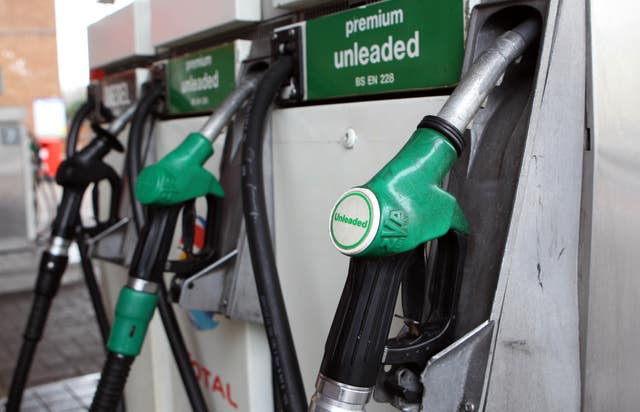New cleaner petrol rolled out across Britain’s forecourts
E10 petrol is made with up to 10% bioethanol, which is a type of renewable fuel.

A cleaner form of petrol is being introduced at filling stations across Britain from Wednesday.
E10 petrol, which is made with up to 10% bioethanol – a type of renewable fuel – will be the standard offering at forecourts as part of Government plans to cut carbon emissions.
It is replacing E5 petrol, blended with up to 5% bioethanol.
E10 is due to arrive in Northern Ireland in early 2022.
The Department for Transport said more than 95% of petrol cars licensed for use on Britain’s roads are compatible with E10, which is not expected to cost more than E5.
An impact assessment published in January 2020 estimated that around 600,000 cars – such as classic cars or those built in the early 2000s – would be incompatible with the new fuel this year.
Owners of those vehicles can continue to access E5 by purchasing super unleaded which costs an average of 8.7p a litre more than standard petrol, according to AA figures.
Motorists can use the Government’s online E10 checker at www.gov.uk/check-vehicle-e10-petrol to find out if their vehicle can be filled with E10.
The DfT admitted that E10 can “marginally” reduce fuel economy but it insisted the impact is “almost unnoticeable to most drivers when making every day journeys”.

It stated that the rollout of E10 could cut transport CO2 emissions by 750,000 tonnes per year which is the equivalent of taking 350,000 cars off of UK roads.
Transport Secretary Grant Shapps said: “Every journey matters as we drive forward the green industrial revolution, which is why the rollout of E10 is so important.
“It’ll help us cut road greenhouse gas emissions and meet our ambitious net zero targets.
“Although more and more drivers are switching to electric, there are steps we can take today to reduce emissions from the millions of vehicles already on our roads.
“The small switch to E10 petrol will reduce greenhouse gas emissions as we accelerate towards a greener transport future.”
AA president Edmund King said: “This is a positive and simple step to help reduce the carbon impact from road transport.

“While the vast majority of vehicles will be unaffected by the change, it is important for owners of older cars to use the Government’s vehicle checker to see if they can use E10.
“Even if E10 is put in a non-compliant vehicle, drivers should not panic and can simply put super unleaded in their tank at the next available opportunity.”
An RAC survey of 1,450 UK drivers suggested that 27% of motorists are yet to check whether their car is compatible with the new fuel.
The firm’s head of policy Nicholas Lyes said: “E10 petrol has already started appearing on forecourts to replace the old E5 blend, and that process will continue at pace in the coming weeks.
“But while the vast majority of drivers of petrol cars aren’t affected, a sizeable minority will be and the only way to be sure is to use the official online checker.”





